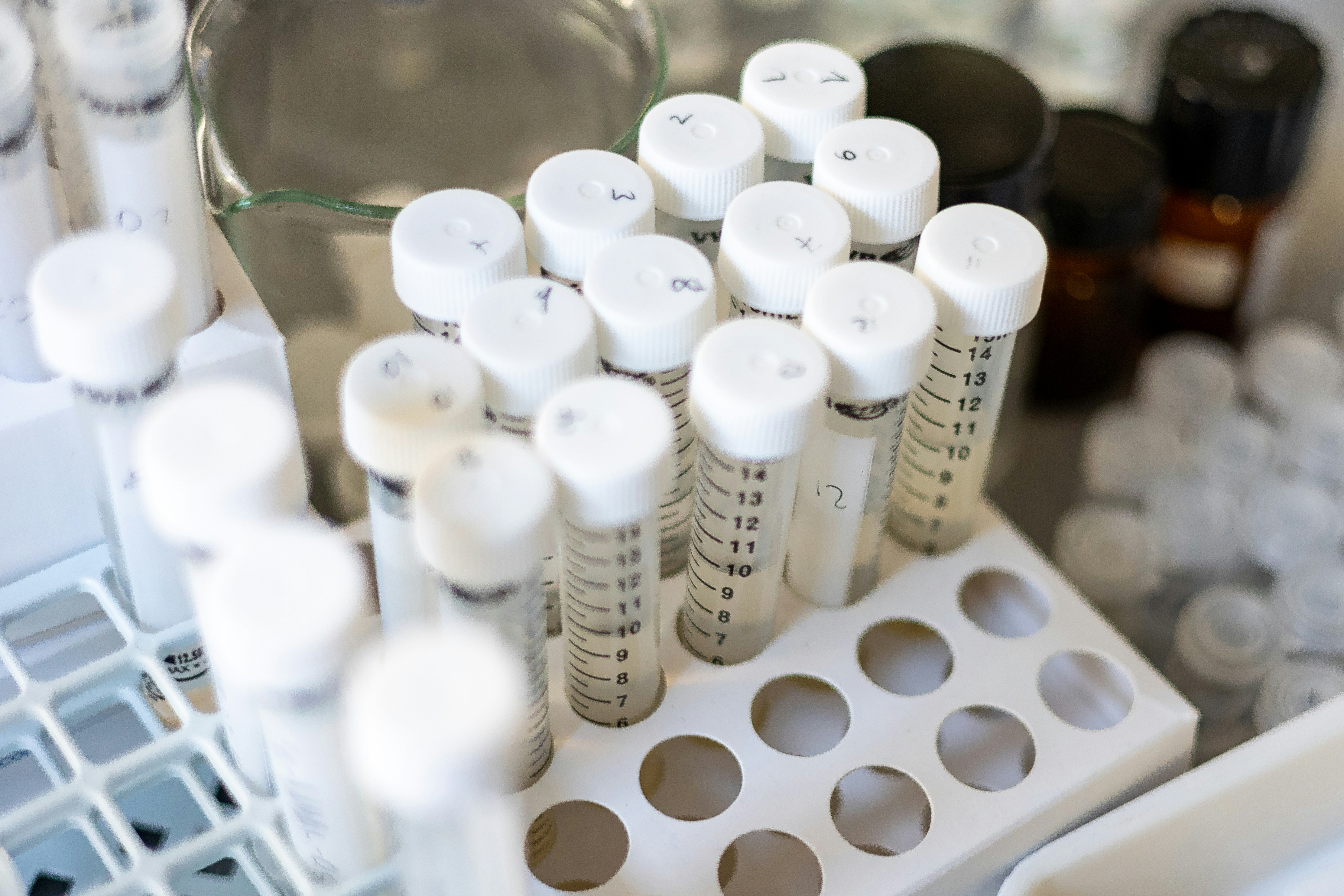
- While it’s technically possible to get an STI from a toilet seat, it’s extremely unlikely. Viruses and bacteria can only exist outside your body for very short periods of time.
- Asymptomatic or silent STIs are STIs that present with no symptoms, which can make them hard to identify and easy to accidentally spread. This is why periodic STI testing is important if you believe you’re even at a small risk of exposure.
- Although condoms are a great to prevent infections from certain types of STIs (i.e., HIV, Gonorrhea, Chlamydia, etc.), some types of STIs can still spread even with proper condom use (i.e., HPV, herpes, crabs, etc.).
- Periodic testing is essential to help protect you and your partner(s) from exposure to STIs. Growing your STI education is an important part of this process, which you can also share with those in your community to help others improve their protections as well.
- If you believe that you’ve been exposed to an STI, even without symptoms, you should let your healthcare team know, so that they can take steps necessary to properly diagnose and begin treating your infection.
- Felix can assist you with getting essential at-home STI self test kits, and all you need to do to get started is complete a short online assessment, whenever it works for your schedule.
STIs (also sometimes called STDs) can be a frightening thing to be faced with, but it doesn’t have to be. Many people experience STIs at some point in their lives, and in many cases, STIs can be treated and/or cured, as long as you make the effort to get them treated.
This page will walk you through some of the STI myths you’ve probably heard before, as well as clarify these misconceptions about STIs with some facts you can rely on. How common are STIs? Much more than you might think.
By the time you finish reading this, you’ll know what to really expect, and through expanding your STI education, you can learn how to protect yourself and your partner(s) from potential infection in the future.
SIDE NOTE: There are some misconceptions about STDs vs STIs, which we should clarify. New education and facts show STD is a less popular way to describe these conditions, due to the fact that they are infections and many are curable.
To avoid confusion, we’ll use the term Sexually Transmitted Infections (STI) which accurately describes the nature and manageability of these conditions.
Can You Really Get an STI from a Toilet Seat? Common Myths Explained
This is potentially one of the oldest STI misconceptions that you’ve heard about. It’s not uncommon to hear rumours of a local who caught STIs from a toilet seat.
The truth of the matter is that the odds of this happening are extremely low. STIs that are caused by viruses or bacterial growths can only survive outside your body for a very, very short period of time.
While it is technically possible, it would be exceptionally unlikely to get STIs from a toilet seat; even if it’s only been a couple of minutes since someone else used that seat.

The Silent Spread of STIs: Why Asymptomatic Infections Matter
Asymptomatic STIs, also sometimes referred to as ‘silent STIs’, are viral or bacterial STIs that present with no symptoms.This makes it both difficult to identify/diagnose these conditions, while also making it really easy to unintentionally pass it your partner(s).
This is part of the reason why if you believe you’re at even a small risk of exposure to STIs, you should consider getting periodic STI testing, in order to provide yourself and your partner the peace of mind that neither of you are carrying any silent STIs.
Felix is making it quick and seamless for patients over the age of 18 to request STI testing from the comfort and privacy of their own home.
If you’d like to discuss ordering an STI test that can help identify asymptomatic STIs, just complete an assessment with one of our licensed healthcare practitioners to get started today.
Understanding the Limits of Condom Use
Curious what STIs condoms do prevent against? While it’s true that using condoms (properly) can be an effective way to prevent the spread of certain STIs (i.e., HIV, Gonorrhea, Chlamydia, Trichomoniasis), this doesn’t protect you against every type of STI.
There are a number of STIs that you can still contract, even with condom use, such as:
- Herpes
- HPV
- Syphilis
- Chancroid
- Monkeypox
- Crab
- Scabies
- Molluscum Contagiosum
The fact is, these STIs spread through contact with the mucosal surfaces, secretions, as well as affected skin; all of which may be located outside the surface of the condom.
Why Regular STI Testing Is Essential, Even Without Symptoms
One of the most important things to learn throughout your STI education is that regular testing is essential for anyone who believes they could be at risk of exposure.
While symptoms are a great way to easily identify certain STIs, many STIs present with no symptoms, which can make it a lot harder to identify them. These symptomatic or ‘silent’ STIs are easy to spread, because many people don’t even realize they have them.
Ensuring that you get periodic STI testing gives you and your partner(s) the peace of mind that you’re currently free from STI infections, or the opportunity to treat them, before they can continue to grow and spread.

The Importance of Education in STI Prevention
We can’t overstate the importance of separating STI facts from misconceptions, as a major part of your STI education process. Myths about STIs lead to poor protection choices, which can lead to unwanted exposures to infections or impact your ability to enjoy sexual activities.
Understanding how STIs function, how they spread, as well as how to identify them when you become exposed, is essential to protecting your health for the future.
Although it may not be something many people consider, improving your education allows you to share tips and STI facts amongst people within your community.
When most of the people that are sexually active in an area choose to get periodic STI testing performed, it can help reduce the frequency and severity of outbreaks in specific regions.
What to Do if You Think You’ve Been Exposed to an STI
The first thing that you should do is contact your healthcare team to let your providers know that you believe you may have been exposed to an STI, even with no symptoms present.
They’ll likely suggest that you have some STI lab testing performed, in order to determine whether you have indeed been exposed to an STI. From there, your healthcare team will determine the best course of action for you, as well as test your partner(s) for potential exposure.
Felix is here to help with the first important step in this process by providing online STI testing, as long as you’re over the age of 18 and live in one of the provinces that Felix services across the country.
To request these resources, get started today by completing a short online assessment, and one of our clinicians will review and respond to your request within 24 hours.
Frequently Asked Questions About STI Misconceptions
Can You Get an STI from Kissing?
STIs and kissing have an interesting relationship, because while you’re at low-risk of being exposed to STIs when compared to intercourse, oral, or anal sex, it is still possible to be exposed to certain STIs through deep mouth kissing, including:
- Herpes (HSV-1 and HSV-2)
- HPV
- Monkeypox
- Syphilis
This is due to the fact that these specific STIs can be spread through skin-to-skin contact, as well as through saliva.
Can You Get an STI from Oral Sex?
Yes, you can.
Certain STIs are spread through contact to mucosal secretions or surfaces, saliva, as well as affected areas of skin. This means men and women can become infected with STIs from oral sex, both through giving and receiving.
Do Condoms Prevent All STIs?
No, condoms do not prevent all STIs.
It’s important to remember that condoms are a great way to prevent certain types of STIs, like HIV, Gonorrhea, and Chlamydia. However, this doesn’t protect you against every type of STI.
Some forms of STIs are transferred through infected skin, saliva, as well as mucus-covered surfaces and secretions. This means STIs like HPV, herpes, etc., may still be able to spread, even if you’re properly using a condom.
Is it Possible to Have an STI Without Any Symptoms?
Absolutely, it is. In fact, one of the biggest STI myths is that you’ll always have symptoms alongside an infection. The fact is many STIs present asymptomatically.
These ‘silent STIs’ may be present for long periods of time without any symptoms at all. This makes them harder to identify without periodic testing. It also makes them easy to accidentally spread to your partner(s).
This is why practitioners will recommend periodic STI testing for any STIs that you believe you could be at risk of exposure to contracting. If you’re interested in learning what STI tests Felix is able to provide to our patients over the age of 18, complete an assessment to get started today.

Can You Get an STI if Both Partners are Uninfected?
Yes, you can still get an STI even if both partners have no STIs.
This is particularly true under certain circumstances that may increase your risks of exposure, outside of your partner, such as:
- Sharing towels, clothing, or bedding (crabs and scabies can spread through these porous fabrics)
- Having an open sexual relationship
- Having more than one sexual partner
- Experiencing a flare-up of an otherwise dormant STI (i.e., herpes)
Can Virgins Get STIs?
Yes, virgins can get STIs just like anyone else.
It doesn’t take vaginal or anal intercourse to contract STIs. Oral sex, deep mouth kissing, and even sharing clothing or bedding can allow certain types of STIs to spread.
Can You Get an STI from a Toilet Seat?
Yes, you can get an STI from a toilet seat. However, it’s very, very unlikely to happen.
STI viruses or bacteria can only survive outside of your body for a short period of time, before they die. Typically, this doesn’t give the infections the opportunity to spread through non-porous surfaces like toilet seats.
Can You Get an STI from Touching Yourself?
No, STIs aren’t spread via solo masturbation. You can’t get an STI from touching yourself.
If you’re performing mutual masturbation with your partner, where you are both taking turns interacting with each others’ genitals, then there is a risk of exposure due to mucosal secretions being transferred by hand.
What are the Most Common Asymptomatic STIs?
There are a number of STIs that may or may not present with symptoms. In many cases, this is based on each individual person.
Some people may experience symptoms within a few days of exposure, others may not experience symptoms for months or even years. Some patients won’t have symptoms at all throughout their infection.
The most common STI that are asymptomatic include:
- Syphilis
- HPV
- Herpes
- Gonorrhea
Also, some STIs may take weeks or months to even begin showing up on tests, such as HIV which can take up to 2 months to begin appearing on lab testing. This is why it’s important to keep track of how long since your potential exposure, so your practitioner can suggest accurate testing timeframes.
Can You Get an STI from a Public Pool or Hot Tub?
No, you can’t. This is a common STI myth that has no basis in reality.
The fact is that STI viruses and bacteria are killed by the chlorine and other cleaning chemicals that are used to keep these shared facilities safe for everyone.
How Soon After Exposure Can an STI be Detected?
This really depends on the type of STI that you believe you may have been exposed to. There can be a drastic difference in timing between how long it takes for an STI to begin appearing in lab test results.
Some examples you can use to gauge your testing timeframes after exposure include:
- Chlamydia: 2 weeks
- Syphilis: 3-4 weeks (and a repeat test after 3 months)
- Gonorrhea: 2 weeks
- Hepatitis B: 2-4 weeks
- Hepatitis C: 2-4 weeks
- HIV: 45 days for a blood test (90 days for an oral swab or self test)
If you try testing for these STIs prior to waiting these periods of time, your lab tests may not accurately show an infection, when it may present.
Can You Get an STI Through Non-Penetrative Sex?
Yes, you can.
Some STIs can be spread through deep mouth kissing, as well as through oral sex. Despite both of these being non-penetrative forms of sex, performing these activities with an infected individual can expose you to these STIs.
Also, sharing clothing, towels, or bedding can allow some specific STIs to spread as well, which don’t require any sexual or intimate contact whatsoever.
Are STIs More Likely to Spread During Your Period?
This is an STI fact that often gets presented as though it’s a myth.
In fact, STIs (pathogens like viruses and bacteria) can pass through period blood, which can increase your risks of spreading the infection to your partner(s).
Can You Get an STI from Sharing Personal Items like Razors or Towels?
Yes, although this doesn’t apply to all STIs, some STIs may be spread through sharing personal items like towels. This is because certain STIs (i.e., crabs and scabies) can spread through porous fabrics like towels, bedding, and shared clothing.
Additionally, razors may cause tiny skin tears, which can increase the risks of transmitting certain STIs that are passed through blood contact (i.e., Hepatitis B, Hepatitis C, and HIV).
If you believe that your partner or yourself has one of these STIs, it’s best not to share these items with anyone; at least, until your condition is considered under control.
How Effective are Birth Control Pills in Preventing STIs?
Not at all. This is a common STI misconception that has no basis in truth.
There are currently no birth control pills, or other hormonal contraceptives, which will protect you against exposure to STIs. If you’re currently taking birth control pills, and you believe you require preventative measures against STIs, be sure to talk to your healthcare team.
They’ll be able to suggest additional STI protection options that you can use alongside birth control pills to protect you against infection, as well as continue preventing unwanted pregnancies.
How Often Should You Get Tested for STIs?
A good rule to follow is to get yourself tested once every 3-6 months, for as long as you believe you’re at risk for exposure.
This way, you and your partner(s) can enjoy the peace of mind that you’re being checked regularly for any potential infections, and you can continue enjoying life on your terms - the way it should be.
Are There Any STIs That You Can't Get Rid of?
Yes, some STIs are incurable. They may be able to be treated, but once they’ve been contracted, you’ll have these STIs for the remainder of your life. These are viral infections, which can be treated, but aren’t curable like bacterial infections.
Some of these STIs include:
- HIV
- Hepatitis B
- Genital herpes
Can You Get an STI from Oral-Genital Contact?
Yes, you can.
Some STIs are passed through mucosal surfaces and secretions, which means that you can contract them by making oral contract with these areas. The same risk applies with affected skin areas.
It’s best to avoid oral-gential contact with someone who’s been affected.
Can You Get an STI from Dry Humping or Outercourse?
Although the risks of this occurring are lower, if these activities are also involving deep mouth kissing, heavy petting (under the clothing), or other contact with infected areas or areas of potential exposure, it is still possible to become exposed performing these activities.
It’s important to remember that STIs can be transferred in a number of ways, which you should avoid if you believe you or your partner could be infected, including:
- Saliva
- Blood (including period blood)
- Mucosal surfaces and secretions
- Affected skin areas
Can STIs be Transmitted Without Intercourse?
Yes, some STIs can be transmitted without intercourse vaginal or anal intercourse taking place.
Not only can some STIs be transferred through deep kissing, oral sex, and skin-to-skin contact at affected areas (which don’t require any type of penetration), but others can even spread through shared clothing, bedding, or towels.
Can STIs Affect Your Fertility?
Yes, some can. This is true for both men and women.
This is especially true for STIs that are left undiagnosed and untreated for long periods of time, which is why it’s so important to periodically get tested for exposure every 3-6 months, if you believe you’re at risk.
Do STIs Only Affect People with Multiple Partners?
Absolutely not. STIs can affect anyone, even virgins can get STIs through contact.
It’s important to note that having multiple partners can increase your risks of exposure to STIs, particularly if any of your sexual partners haven’t been tested for STIs, and they’re sleeping with multiple partners as well.
However, there is nothing inherent about having multiple partners that increases your risks of STI exposure; especially if you and all your partners are regularly getting tested to protect all of your health.
Medically reviewed by
References




